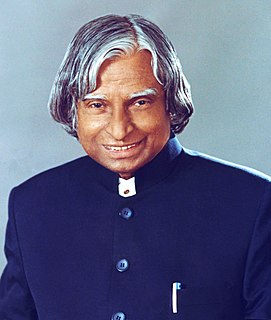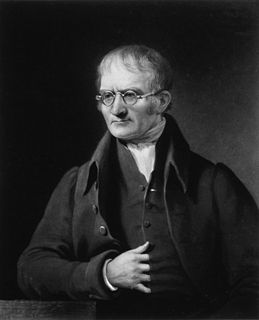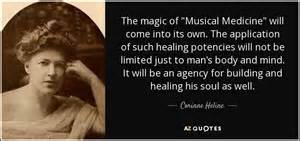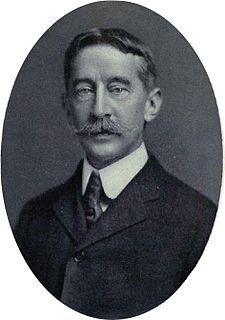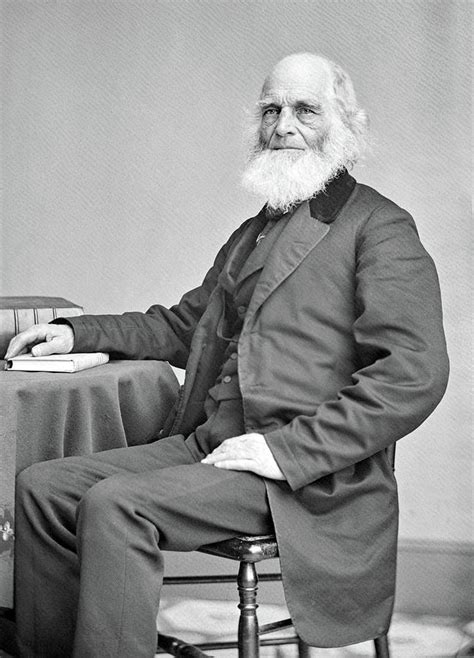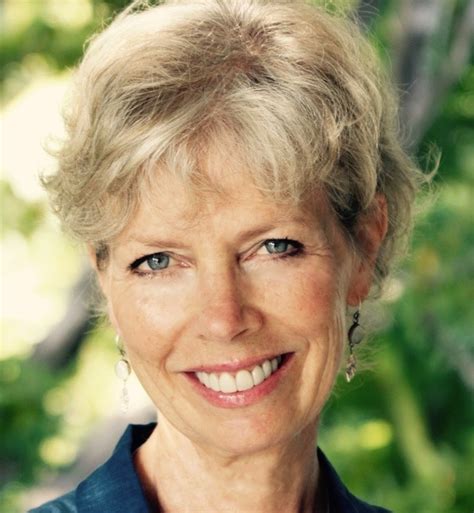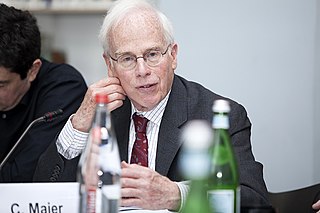Top 218 Currents Quotes & Sayings - Page 4
Explore popular Currents quotes.
Last updated on April 20, 2025.
The great river-courses which have shaped the lives of men have hardly changed; and those other streams, the life-currents that ebb and flow in human hearts, pulsate to the same great needs, the same great loves and terrors. As our thought follows close in the slow wake of the dawn, we are impressed with the broad sameness of the human lot, which never alters in the main headings of its history--hunger and labour, seed-time and harvest, love and death.
We often move away from pain, which is helpful only before being hurt. Once in pain, it seems the only way out is through. Like someone falling off a boat, struggling to stay above the water only makes things worse. We must accept we are there and settle enough so we can be carried by the deep. The willingness to do this is the genesis of faith, the giving over to currents larger than us. Even fallen leaves float in lakes, demonstrating how surrender can hold us up.
Desire, when it stems from the heart and spirit, when it is pure and intense, possesses awesome electromagnetic energy. This energy is released into the ether each night, as the mind falls into the sleep state. Each morning it returns to the conscious state reinforced with the cosmic currents. That which has been imaged will surely and certainly be manifested. You can rely, young man, upon this ageless promise as surely as you can rely upon the eternally unbroken promise of sunrise... and of Spring.
Olive's private view is that life depends on what she thinks of as "big bursts" and "little bursts." Big bursts are things like marriage or children, intimacies that keep you afloat, but these big bursts hold dangerous, unseen currents. Which is why you need the little bursts as well: a friendly clerk at Bradlee's, let's say, or the waitress at Dunkin' Donuts who knows how you like your coffee. Tricky business, really.
You may seek companionship and warmth, for example, but if your unconscious intention is to keep people at a distance, the experiences of separation and pain will surface again and again until you come to understand that you, yourself, are creating them. Eventually, you will choose to create harmony and love. You will choose to draw to you the highest-frequency currents that each situation has to offer. Eventually, you will come to understanding that love heals everything, and love is all there is.
Every flyer who ventures across oceans to distant lands is a potential explorer; in his or her breast burns the same fire that urged the adventurers of old to set forth in their sailing-ships for foreign lands. Riding through the air on silver wings instead of sailing the seas with white wings, he must steer his own course, for the air is uncharted, and he must therefore explore for himself the strange eddies and currents of the ever-changing sky in its many moods.
There can be no sexual love without lust; but, on the other hand, until the currents of lust in the organism have been irradiatedas to affect other parts of the psychic organism--at the least the affections and the social feelings--it is not yet sexual love. Lust, the specific sexual impulse, is indeed the primary and essential element in this synthesis, for it alone is adequate to the end of reproduction, not only in animals but in men. But it is not until lust is expanded and irradiated that it develops into the exquisite and enthralling flower of love.
The cause of rain is now, I consider, no longer an object of doubt. If two masses of air of unequal temperatures, by the ordinary currents of the winds, are intermixed, when saturated with vapour, a precipitation ensues. If the masses are under saturation, then less precipitation takes place, or none at all, according to the degree. Also, the warmer the air, the greater is the quantity of vapour precipitated in like circumstances. ... Hence the reason why rains are heavier in summer than in winter, and in warm countries than in cold.
His markings, month by month, became more beautiful, lines of autumn bracken colours with shapes which reminded me of currents on a quiet sea. True that at times his head, because of his youth, looked scraggy, even his body sometimes looked scraggy, but suddenly for some reason like the change of light, or of mood, he looked his potential. This was going to be a champion cat.
In the etheric body are centered the forces animating man's physical vehicle, so disease is evidenced in the etheric before it manifests in the physical. The etheric, composed of finer, more attenuated substances than the physical, is corresponding amenable to vibratory influences. It is upon the former that harmony and rhythm have the most potent effect. Good music readjusts its molecular structure in accordance with the original divine plan, the archetype, and refines and accentuates it's vibratory currents. All forms of beauty and harmony increase this regenerating process.
Obama does not believe in individual upward mobility. He would penalize it, tax it, regulate it, inveigh against it and disincentivize it. We will be like salmon swimming upstream to mate. We will overcome the currents, the waterfall, the rocks and the predators, and will grapple our way up the stream. Then, at the top of the waterfall will stand Obama the Bear, waiting to scoop us up and have us for dinner. The taxman cometh.
Magnetic current is the same as electric current. Current is [actually] the wrong expression. Really it is not one current, they are two currents, one current is composed of North Pole individual magnets in concentrated streams and the other is composed of South Pole individual magnets in concentrated streams, and they are are running one stream against the other stream in whirling, screwlike fashion, and with high speed.
The young man [Turgot] destined for an ecclesiastical career was placed within walls carefully designed to keep out all currents of new thought; his studies, his reading, his professors, his associates, all were combined to keep from him any results of observation or reflection save those prescribed: probably, of all means for stifling healthy and helpful thought, a theological seminary, as then conducted whether Catholic or Protestant, Jewish or Mohammedan, was the most perfect.
For nine miles along a submerged ridge, the corals rise in lumpy hillocks that spread out 100 yards or more, resembling heaped scoops of rainbow sherbet and Neapolitan ice cream. The mounds, some 100 feet tall, sprout delicate treelike gorgonians that sift currents for a plankton meal. Fish, worms and other creatures dart or crawl in every crevice. This description could apply to thousands of coral reefs in shallow, sun-streaked tropical waters from Australia to the Bahamas. But this is the Sula Ridge, 1,000 feet down in frigid darkness on the continental shelf 100 miles off Norway's coast.
That narrow stretch of sand knows nothing in the world better than it does the white waves that whip it , caress it , collapse on to it . The white foam knows nothing better than those sands which wait for it , rise to it and suck it in .but what do the waves know of the massed, hot, still sands of the desert just twenty , no , ten feet beyond the scalloped edge ? And what does the beach knows of depths, the cold, the currents just there, where-do you see it? - Where the water turns a deeper blue.
It does not follow because many books are written by persons born in America that there exists an American literature. Books which imitate or represent the thoughts and life of Europe do not constitute an American literature. Before such can exist, an original idea must animate this nation and fresh currents of life must call into life fresh thoughts along the shore.
... except in the eyes of a few fanatics (untrustworthy as all lovers) an unmitigated expanse of water is dull even when blue: not in a small boat, where you are part of the winds and currents and tides and are allowed to hold the tiller now and then; but from those decks which the shipping companies with subconscious insight try to make as suburban as possible so that the impact of the monster outside may be lessened, and where the unrecognized boredom is so deep that a wispy smear of smoke on the horizon will queue up a crowd as if for a Valkyrie passing.
Far away in Montana, hidden from view by clustering mountain-peaks, lies an unmapped northwestern corner- the Crown of the Continent. The water from the crusted snowdrift which caps the peak of a lofty mountain there trickles into tiny rills, which hurry along north, south, east and west, and growing to rivers, at last pour their currents into three seas. From this mountain-peak the Pacific and the Arctic oceans and the Gulf of Mexico receive each its tribute. Here is a land of striking scenery.
I would say that introverts make some of the best international philosophers. The less common attribute of the introverted lifestyle - a close societal connection, as such a connection disappears or changes in relevance as the currents of the winds change - leaves too much room for one's own cultural bias. Instead, introverts tend to turn inward, the laboratory of being and all its forms. This is the most accurate study of the individual human being, which is in turn, rather than those affected by cultural limitations, the most universal reflection of human understanding and human behavior.
Countless candles dribbled with hot wax, and their flames, like little flags, fluttered in the unchartered currents of air. Thousands of lamps, naked, or shuttered behind coloured glass, burned with their glows of purple, amber, grass-green, blue, blood red and even grey. The walls of Gormenghast were like the walls of paradise or like the walls of an inferno. The colours were devilish or angelical according to the colour of the mind that watched them. They swam, those walls, with the hues of hell, with the tints of Zion. The breasts of the plumaged seraphim; the scales of Satan.
Ye winds ye unseen currents of the air,
Softly ye played a few brief hours ago;
Ye bore the murmuring bee; ye tossed the air
O'er maiden cheeks, that took a fresher glow;
Ye rolled the round white cloud through depths of blue;
Ye shook from shaded flowers the lingering dew;
Before you the catalpa's blossoms flew,
Light blossoms, dropping on the grass like snow.
People try so hard to believe in leaders now, pitifully hard. But we no sooner get a popular reformer or politician or soldier or writer or philosopher -- a Roosevelt, a Tolstoi, a Wood, a Shaw, a Nietzsche, than the cross-currents of criticism wash him away. My Lord, no man can stand prominence these days. It's the surest path to obscurity. People get sick of hearing the same name over and over.
I take the seashell from my jeans pocket and rub my fingers across its silken, indented surface, shallow as my own open hand. This chalice, subtly shaped by some divine intelligence to allow water to flow in and out with ease, is what I aspire to become: a vessel through which feelings can pour in and spill right out again, without all the grasping and holding that obstructs the flow. Can I be as serene and simple as this bleached shell, rubbed smooth by wind and water, receiving and releasing, filling and emptying and filling again, eternally receptive to the currents of life?
Srinivasa Ramanujan was the strangest man in all of mathematics, probably in the entire history of science. He has been compared to a bursting supernova, illuminating the darkest, most profound corners of mathematics, before being tragically struck down by tuberculosis at the age of 33, like Riemann before him. Working in total isolation from the main currents of his field, he was able to rederive 100 years' worth of Western mathematics on his own. The tragedy of his life is that much of his work was wasted rediscovering known mathematics.
The Buddha described his teaching as "going against the stream." The unflinching light of mindful awareness reveals the extent to which we are tossed along in the stream of past conditioning and habit. The moment we decide to stop and look at what is going on (like a swimmer suddenly changing course to swim upstream instead of downstream), we find ourselves battered by powerful currents we had never even suspected - precisely because until that moment we were largely living at their command.
There's always the possibility that you're going to come across a record that transforms your life. And it happens weekly. It's like a leaf on the stream. There are little currents and eddies and sticks lying in the water that nudge you in a slightly different direction. And then you break loose and carry on down the current. There's nothing that actually stops you and lifts you out of the water and puts you on the bank but there are diversions and distractions and alarums and excursions which is what makes life interesting really. It's fantastic.
The reflection, the verisimilitude, of life that shines in the fleshly cells from the soul source is the only cause of man's attachment to his body; obviously he would not pay solicitous homage to a clod of clay. A human being falsely identifies himself with his physical form because the life currents from the soul are breath-conveyed into the flesh with such intense power that man mistakes the effect for a cause, and idolatrously imagines the body to have life of its own.
I will remember the kisses our lips raw with love and how you gave me everything you had and how I offered you what was left of me, and I will remember your small room the feel of you the light in the window your records your books our morning coffee our noons our nights our bodies spilled together sleeping the tiny flowing currents immediate and forever your leg my leg your arm my arm your smile and the warmth of you who made me laugh again.
The path of self-purification is hard and steep. One has to become absolutely passion-free in thought, speech and action to rise above the opposing currents of love and hatred, attachment and repulsion. I know that I have not in me as yet that triple purity in spite of constant ceaseless striving for it. That is why the world's praise fails to move me, indeed it very often stings me. To conquer the subtle passions seems to me to be harder far than the physical conquest of the world by the force of arms.
He was tall, one of the tallest men she had ever seen. Dressed in jeans, boots and a cotton shirt. Thick black hair grew rakishly long, falling over the collar of his shirt. Intense brown eyes, almost the color of amber, surveyed the diner slowly before coming back to her. Electricity sizzled in the air then, as though invisible currents connected them, forcing her to recognize him on a primitive level. Not that she wouldn’t take notice anyway. He was power, strength, and so incredibly male that her breath caught at the sight of him.
What would it mean if there were a theory that explained everything? And just what does "everything" actually mean, anyway? Would this new theory in physics explain, say the meaning of human poetry? Or how economics work? Or the stages of psychosexual development? Can this new physics explain the currents of ecosystems, or the dynamics of history, or why human wars are so terribly common?
World' is a large term, but man must enlarge his allegiance, considering himself in the light of a world citizen... A person who truly feels: 'The world is my homeland; it is my America, my India, my Philippines, my England, my Africa,' will never lack scope for a useful and happy life. His natural local pride will know limitless expansion; he will be in touch with creative universal currents.
The experimental investigation by which Ampere established the law of the mechanical action between electric currents is one of the most brilliant achievements in science. The whole, theory and experiment, seems as if it had leaped, full grown and full armed, from the brain of the 'Newton of Electricity'. It is perfect in form, and unassailable in accuracy, and it is summed up in a formula from which all the phenomena may be deduced, and which must always remain the cardinal formula of electro-dynamics.
With a profound first-hand knowledge of participants, encompassing linguistic competence, and engaging prose, Padraic Kenney recreates the simultaneously serious and playful currents of East Europe's overthrow of repressive state socialism. What an invaluable guide to the elusive exhilaration that motivated the actors and captivated all of us who followed the transformation with such hope! We can appreciate neither the ebullience of 1989 nor the disappointment with the quotidian reality that followed without understanding Kenney's 'carnival.'
Music burst through him, perfect notes he hear rarely. Fire and ice, wind and calm, sky and earth, water and rock all fused together. Joley seemed as wild and turbulent s the sea, yet beneath her fiery passion, at the very core of her, she was as forceful and strong and as constant as the deepest ocean currents. Ilya seemed as calm as a windless sea, yet beneath the surface smoldered a volcano of such explosive magnitude, his power could easily sweep everything from his path. Together they completed each other, his melody and hers merging together into a single, perfect harmony.
My theory is that poems are written because of a state of emotional irritation. It may be present for some time before the poet is conscious of what is tormenting him. The emotional irritation springs, probably, from subconscious combinations of partly forgotten thoughts and feelings. Coming together, like electrical currents in a thunder storm, they produce a poem. ... the poem is written to free the poet from an emotional burden.
The human venture depends absolutely on this quality of awe and reverence and joy in the Earth and all that lives and grows upon the Earth. As soon as we isolate ourselves from these currents of life and from the profound mood that these engender within us, then our basic life-satisfactions are diminished. None of our machine-made products, none of our computer-based achievements can evoke that total commitment to life.
There is a note that comes into the human voice by which you may know real weariness. It comes when one has been trying with all his heart and soul to think his way along some difficult road of thought. Of a sudden he finds himself unable to go on. Something within him stops. A tiny explosion takes place. He bursts into words and talks, perhaps foolishly. Little side currents of his nature he didn't know were there run out and get themselves expressed. It is at such times that a man boasts, uses big words, makes a fool of himself in general.


